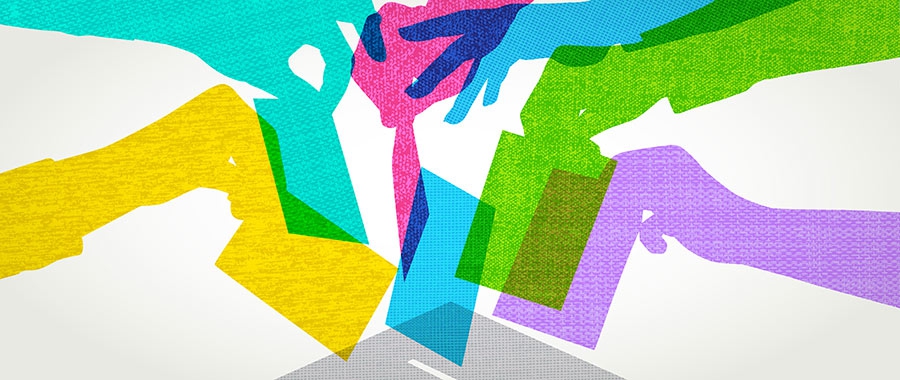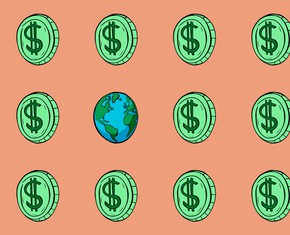The views expressed in our content reflect individual perspectives and do not represent the authoritative views of the Baha'i Faith.
The United Nations celebrates the International Day of Democracy every year on September 15th, to invigorate democracy and seek answers to the systemic challenges it faces.
Those goals, the United Nations has explained, include tackling economic and political inequalities, making democracies more inclusive by bringing the young and marginalized into political systems, and making democracies more innovative and responsive to emerging challenges such as migration and climate change. The United Nations recently issued a statement on democracy that says, in part:
With this year’s 70th anniversary of the Universal Declaration of Human Rights, the International Day of Democracy is also an opportunity to highlight the values of freedom and respect for human rights as essential elements of democracy. The Universal Declaration of Human Rights, which states that “the will of the people shall be the basis of the authority of government” (article 21.3), has inspired constitution-making around the world and contributed to global acceptance of democratic values and principles. Democracy, in turn, provides the natural environment for the protection and effective realization of human rights. – Democracy Day
But with many existing democracies under strain around the world, where can we find solutions? How can we further the cause of freedom and representative democracy around the world?
The Secretary-General of the United Nations, António Guterres, asked this important question in his 2018 International Day of Democracy statement: “How do we build better governance so that democracy delivers better lives and fully meets the public’s aspirations?”
The Baha’i teachings have clear answers to that crucial question, and principles that recommend ways to build better governance.
First, Baha’is believe in democracy; and support democratic governments. Baha’u’llah, whose Faith aims to reform the world and abolish tyranny, advocated a universal, democratic, parliamentary government based on the oneness of humanity. Writing to Britain’s Queen Victoria in 1868, Baha’u’llah praised the British constitutional form of parliamentary governance. Abdu’l-Baha, in his treatise on governance called The Secret of Divine Civilization, advocated for:
… constitutional and democratic government, the rule of law, universal education, the protection of human rights, economic development, religious tolerance, the promotion of useful sciences and technologies and programmes of public welfare. … Government would endeavour conscientiously to combine spiritual values with the principles of democratic choice. – The Universal House of Justice, November 2003, p. 1.
When Abdu’l-Baha traveled to the West in the early part of the 20th Century, he commended the democratic governments he encountered there:
American people have great capabilities. In England also one witnesses the signs of awakening. In reality American and the English people are one. The governments and the nations of both countries are noble and democratic. – Abdu’l-Baha, Star of the West, Volume 3, p. 7.
The greatest thing I have seen in America is its freedom. In reality this is a free nation and a democratic government. – Ibid., p. 207.
Second, the worldwide Baha’i community has no clergy and no autocratic leaders—instead, Baha’i leadership is democratically elected, from the local to the global level:
The abolition of professional priesthood with its accompanying sacraments of baptism, of communion and of confession of sins, the laws requiring the election by universal suffrage of all local, national, and international Houses of Justice, the total absence of episcopal authority with its attendant privileges, corruptions and bureaucratic tendencies, are further evidences of the non-autocratic character of the Baha’i Administrative Order and of its inclination to democratic methods in the administration of its affairs. – Shoghi Effendi, The World Order of Baha’u’llah, pp. 153-154.
Third, the Baha’i teachings advocate applying the principle of federalism, so effective in the governance of the United States, to the entire planet:
The world is contracting into a neighborhood. America, willingly or unwillingly, must face and grapple with this new situation. For purposes of national security, let alone any humanitarian motive, she must assume the obligations imposed by this newly created neighborhood. Paradoxical as it may seem, her only hope of extricating herself from the perils gathering around her is to become entangled in that very web of international association which the Hand of an inscrutable Providence is weaving. Abdu’l-Baha’s counsel to a highly placed official in its government comes to mind, with peculiar appropriateness and force: You can best serve your country if you strive, in your capacity as a citizen of the world, to assist in the eventual application of the principle of federalism, underlying the government of your own country, to the relationships now existing between the peoples and nations of the world. – Shoghi Effendi, The Advent of Divine Justice, pp. 87-88.
This emphasis in the Baha’i teachings on a new system of democratic global federalism means establishing a spiritual democracy—one that focuses on and unleashes “social, moral, intellectual service” to humanity:
The religions of the past have fallen into decay on account of self-seeking leaders who in the course of time appropriated all the rights and powers unto themselves and looked down contemptuously upon the rest of their co-religionists as ignorant and deprived of the knowledge of God.
The Baha’is must be always on the alert, so that they may not fall into this pit. They must keep the religion of God pure and uncontaminated, a haven of rest for the despondent souls, a safe harbour for the shipwrecked, a divine antidote for the ailing ones, a torch of light for those who are groping in the darkness, and a spiritual democracy for the down-trodden and the outcast.
Service, social, moral, intellectual service must be the sole aim of a soul. He must be sincere and heartfelt in his profession, otherwise he will not succeed and his simulation will soon be found out by his co-religionists. Every Baha’i must be a loyal servant of the world of humanity. Baha’is must clothe themselves with the robe of service, sit around the table of service, eat the food of service, drink the elixir of service, talk the problems of service, hold communication with the King of service, walk in the path of service, crown their heads with the diadem of service, be intoxicated with the wine of service, and quaff the salubrious water from the fountain of service. – Abdu’l-Baha, Star of the West, Volume 4, p. 180.
So today, on the International Day of Democracy, the Baha’is around the world all work toward the time when humanity will peacefully and unitedly govern itself with a global parliament, “a spiritual democracy for the down-trodden and the outcast.”
















Comments
Sign in or create an account
Continue with Googleor